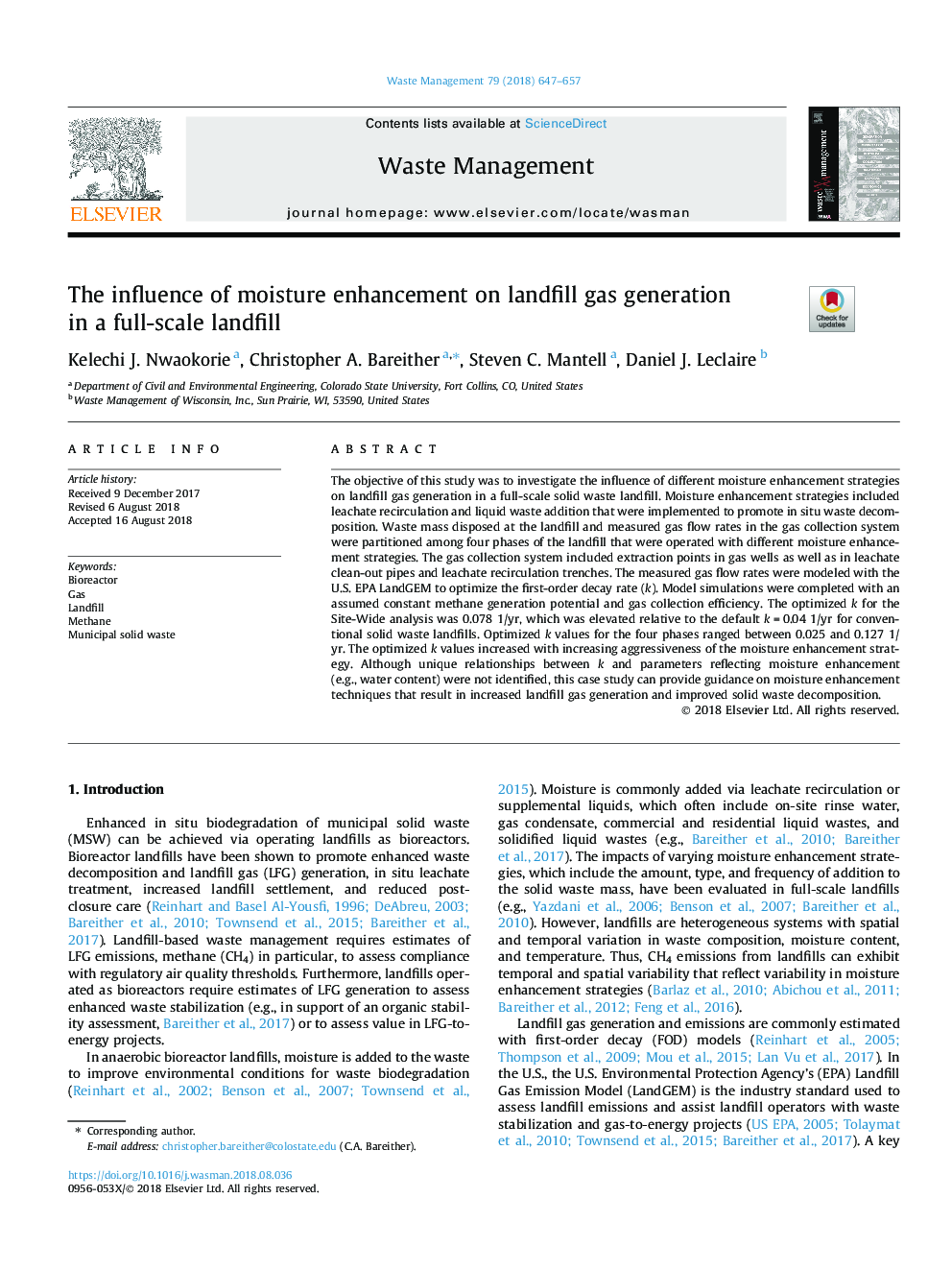| Article ID | Journal | Published Year | Pages | File Type |
|---|---|---|---|---|
| 11033322 | Waste Management | 2018 | 11 Pages |
Abstract
The objective of this study was to investigate the influence of different moisture enhancement strategies on landfill gas generation in a full-scale solid waste landfill. Moisture enhancement strategies included leachate recirculation and liquid waste addition that were implemented to promote in situ waste decomposition. Waste mass disposed at the landfill and measured gas flow rates in the gas collection system were partitioned among four phases of the landfill that were operated with different moisture enhancement strategies. The gas collection system included extraction points in gas wells as well as in leachate clean-out pipes and leachate recirculation trenches. The measured gas flow rates were modeled with the U.S. EPA LandGEM to optimize the first-order decay rate (k). Model simulations were completed with an assumed constant methane generation potential and gas collection efficiency. The optimized k for the Site-Wide analysis was 0.078 1/yr, which was elevated relative to the default kâ¯=â¯0.04 1/yr for conventional solid waste landfills. Optimized k values for the four phases ranged between 0.025 and 0.127 1/yr. The optimized k values increased with increasing aggressiveness of the moisture enhancement strategy. Although unique relationships between k and parameters reflecting moisture enhancement (e.g., water content) were not identified, this case study can provide guidance on moisture enhancement techniques that result in increased landfill gas generation and improved solid waste decomposition.
Related Topics
Physical Sciences and Engineering
Earth and Planetary Sciences
Geotechnical Engineering and Engineering Geology
Authors
Kelechi J. Nwaokorie, Christopher A. Bareither, Steven C. Mantell, Daniel J. Leclaire,
